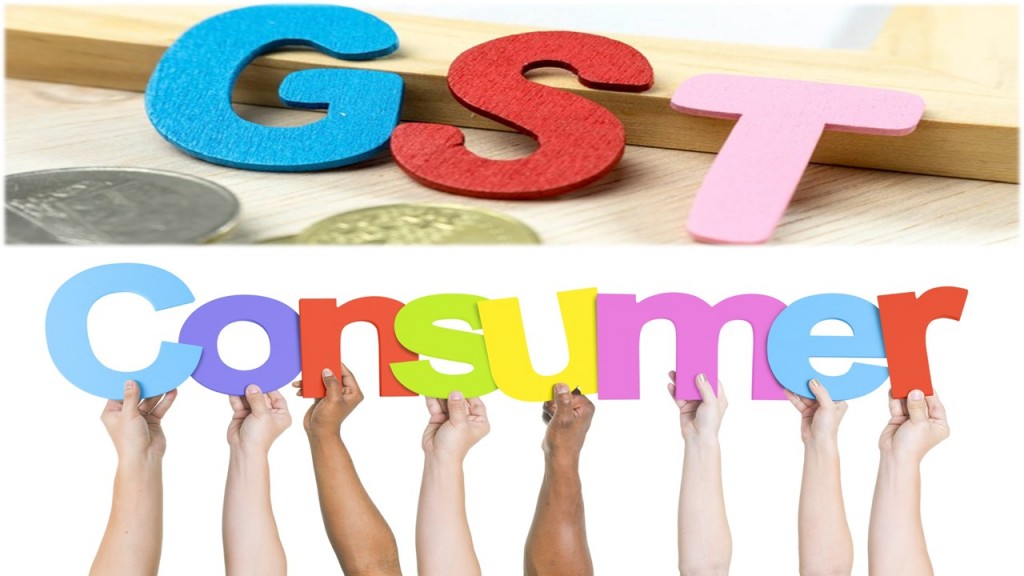Today, if you toss a coin in the middle of the market and ask anyone that whether GST is good or bad, a common man will yell his pain saying that, it’ll burn a deeper hole in his pocket. As the GST era begins, with lots of update for the professionals and businessmen, consumers have been left out with less clarity and this is what is causing a lot of fear among the common man. There are still questions coming in leaps and bounds from the common man, that remain unanswered. Let’s try to answer some of the most common questions and discuss some guidelines to be followed by consumers under GST:
What is the tax rate?
As a consumer, one should be aware that there are four tax slabs under GST viz., 5%, 12%, 18% and 28%.
Should I know the tax rate for the product/service I am buying?
Yes, it is always better if you know the slab in which your product falls. It’ll give you a better understanding on what is being charged to you by the seller. So, update yourself for the rate of the goods or services that you wish to buy.
What can I do for the same?
The best thing you can do is to ask questions. You’ll have to ask a lot of questions for a few days for everything you buy or avail any service. Ask the seller about the tax, the rate applicable, whether he’s registered or not and understand how much the price is changed after GST.
You should also study the bill very carefully for all your purchases and services.
If you’re aware that the price of a product is reduced, please ask about it from the seller and claim the benefit.
I’m eating out. Is it more costly now?
It all depends on how you’re availing the same service. It can be easily understood from the following table:
|
Particulars |
Tax Rate |
Remarks |
| Budget restaurant |
12% |
Increase of 8% from previous service tax. |
| A/c restaurant |
18% |
Higher rate |
| Small roadside eateries(per day turnover < Rs. 20,000) |
5% |
– |
What are some of the exempted goods?
The list of items in the exemption list of GST include Salt, primary produce, flour, salt, milk, eggs, tea, coffee, gur, milk, eggs, curd, fish chicken, eggs, milk, buttermilk, curd, natural honey, fresh fruits, lassi, unpacked paneer, natural honey, fresh vegetables, fruits, atta, besan, maida, vegetable oil, Sindoor, Prasad, common salt, contraceptive, bread, bindi, primary produce, vermillion, stamp, judicial documents, printed books, bangles, and handloom products have been spared from taxation in the finalized GST.
What are the rates for some of the commonly used items?
|
Item |
Rate under GST |
Before GST |
| Toothpaste | 18% | 28% |
| Hair Oil | 18% | 23-24% |
| Soap | 18% | 23-24% |
| Areated Drinks | 28% | 23-24% |
| Fruit Juices | 12% | 12% |
| Edible Oil | 5% | 5-6% |
| Sugar | 5% | 5% |
| Diesel small cars | 28.3% | 23.7% |
| Motorcycles, cars, mopeds | 28% | 17.4% |
| Tractors | 12% | 11.9% |
| SUV/MUV | 32.2% | 28.8% |
| Cement | 28% | 25% |
| Coal | 5% | 11% |
| Paints | 28% | 25% |
| A/c | 28% | 26% |
| Refrigerators | 28% | 24-27% |
| Coolers | 28% | 23.5% |
| LED lighting | 12% | 15% |
| Lifesaving Active Pharmaceutical Ingredient(API) | 5% | 5-8% |
| Other API | 18% | 17% |
| Formulations | 12% | 9% |
| Gold | 3% | 2-2.5% |
| Luxury Hotels | 28% | 28-30% |
| Telecom Services | 18% | 15% |
| Financial Services | 18% | 15-18% |
| Biscuits | 18% | 12-20.5% |
| Beedi | 28% | 20% |
| Beedi leaves | 18% | 15% |
| Branded Garments | 12% | 5-7% |
| Cotton Garments | 5% | 0% |
